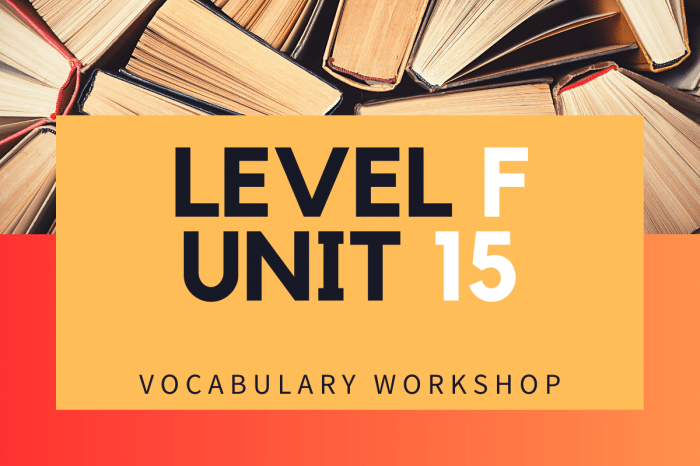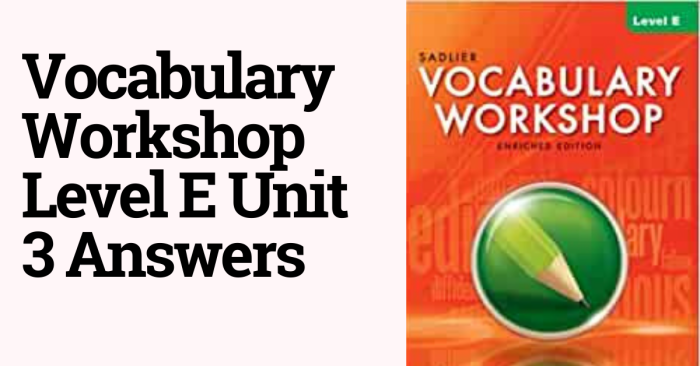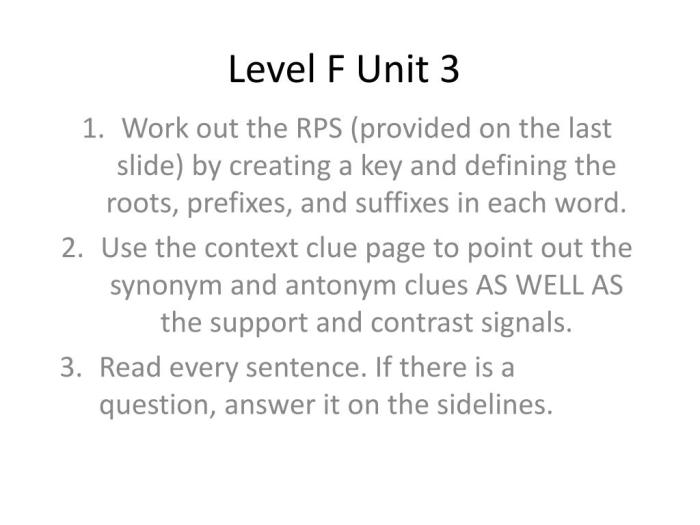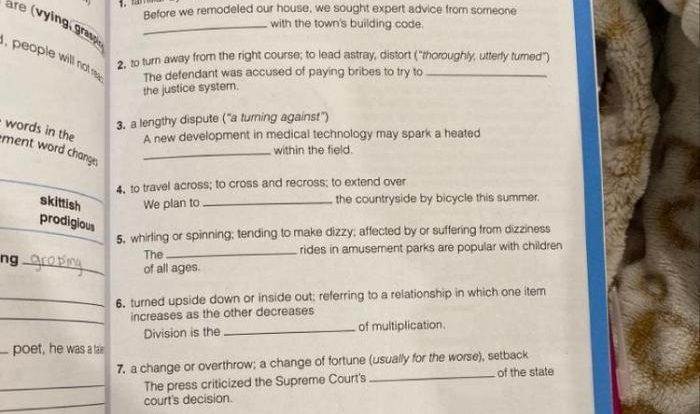Vocabulary level f unit 3 choosing the right word – Embark on a linguistic journey with Vocabulary Level F Unit 3: Choosing the Right Word. This unit delves into the intricacies of word selection, empowering learners to navigate the nuances of language and express themselves with precision and eloquence.
Through a comprehensive exploration of context clues, reference materials, and effective learning strategies, this unit equips learners with the tools to expand their vocabulary, enhance comprehension, and communicate with clarity and confidence.
Understanding Vocabulary Level F Unit 3

Vocabulary Level F Unit 3 targets the acquisition of advanced vocabulary necessary for academic and professional settings. This level emphasizes the development of precise and nuanced language skills to enable effective communication in complex and demanding contexts.
Importance of Vocabulary Development at This Level
At Vocabulary Level F, students need a robust vocabulary to comprehend and produce sophisticated texts. This level focuses on expanding vocabulary through exposure to authentic materials and explicit instruction in word meanings, etymology, and usage.
Specific Skills and Strategies Taught in This Unit
This unit introduces students to:
- Identifying and defining complex and technical terms
- Understanding word relationships and semantic fields
- Using context clues to infer word meaning
- Employing reference materials (e.g., dictionaries, thesauruses) to expand vocabulary
- Applying vocabulary in writing and speaking
Choosing the Right Word

Selecting the most appropriate word for a given context requires careful consideration of word meaning, tone, and purpose. Context clues, such as surrounding words, sentence structure, and overall text, provide valuable information for determining word meaning.
Examples of Context Clues
- Definition or Explanation:“The loquaciousprofessor spoke for hours, captivating the audience with his eloquence.”
- Synonym or Antonym:“The politician’s speech was scathing, criticizing the opposition’s policies as ‘disastrous’ and ‘irresponsible’.”
- Example or Illustration:“The ubiquitoususe of smartphones has transformed the way we communicate.”
Techniques for Using Reference Materials
- Dictionaries:Define unfamiliar words, provide pronunciation, and offer usage examples.
- Thesauruses:Identify synonyms, antonyms, and related terms to expand vocabulary.
- Online Etymology Dictionaries:Explore the historical origins and evolution of words.
Strategies for Vocabulary Acquisition
Effective vocabulary learning involves a combination of active and passive strategies. Active strategies require conscious effort, while passive strategies involve exposure to new words through reading and listening.
| Active Strategies | Passive Strategies |
|---|---|
|
|
Tips for Creating Personalized Vocabulary Lists
- Identify words that are relevant to your academic or professional interests.
- Include words that you encounter frequently in authentic materials.
- Categorize words by topic or theme to enhance organization and retention.
- Review and update your list regularly to ensure ongoing vocabulary growth.
Vocabulary in Context: Vocabulary Level F Unit 3 Choosing The Right Word

Vocabulary is not merely a list of isolated words; it is embedded in the context of authentic texts. Analyzing vocabulary in context helps students understand how words function and contribute to meaning.
Demonstrating Vocabulary’s Impact on Comprehension and Expression
Vocabulary enhances comprehension by providing the necessary tools to decode and interpret complex texts. It also enables effective expression by allowing individuals to convey their ideas precisely and persuasively.
Activities to Encourage Application of New Vocabulary
- Sentence Completion:Fill in blanks with appropriate words from a given vocabulary list.
- Text Annotation:Highlight and define key vocabulary in authentic texts.
- Vocabulary Debates:Engage students in discussions about word meanings and usage.
Assessment and Evaluation
Assessing vocabulary knowledge involves a combination of qualitative and quantitative methods.
Methods for Assessing Vocabulary Knowledge
- Vocabulary Tests:Test recall and comprehension of new words.
- Word Usage Analysis:Examine how students use vocabulary in writing and speaking.
- Vocabulary Journals:Track students’ progress in learning and applying new words.
Criteria for Evaluating Vocabulary Acquisition
- Accuracy in defining and using words
- Range and diversity of vocabulary
- Ability to apply vocabulary in different contexts
- Ongoing vocabulary growth and development
Importance of Ongoing Assessment and Feedback, Vocabulary level f unit 3 choosing the right word
Regular assessment and feedback are essential for monitoring students’ progress and providing guidance for improvement. This helps students identify areas for growth and develop effective vocabulary learning strategies.
FAQ Summary
What is the significance of vocabulary development at this level?
Vocabulary development at this level is crucial as it enhances comprehension, facilitates effective communication, and lays the foundation for higher-level language skills.
How can context clues assist in determining word meaning?
Context clues provide valuable hints about the meaning of unfamiliar words based on the surrounding text, such as synonyms, antonyms, examples, and definitions.
What are some effective strategies for learning and retaining new vocabulary?
Effective strategies include active recall, spaced repetition, using flashcards, creating personalized vocabulary lists, and engaging in meaningful practice.
